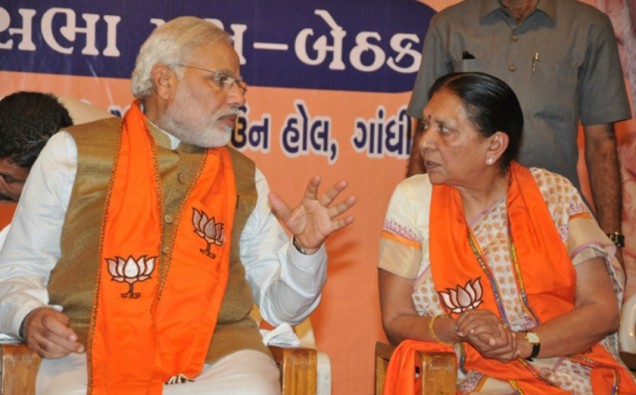
Few South Asian watchers doubted emboldening of hardcore groups espousing Hindutva ideology when Narendra Modi assumed charge of “secular” India last year. What surprised them all is the pace of their ascendency and their ability to operate with immunity.
The growing clout of Hindu nationalist groups, such as Shiv Sena, within a short span of one year, has not only alienated sections of people within India, but also tarnished its image as the world’s biggest secular nation with tremendous achievements in the fields of arts.
These groups have been able to force publishers to withdraw books, pressure universities to alter texts from syllabuses, and have unleashed attacks on people they deem as opposed to Hindu religion. These trends challenge the multicultural complexion of the Indian society and deeply hurt efforts toward inter-faith harmony.
Many Indian analysts and politicians say the apparent trigger to this phenomenal rise of extremist groups is the tacit support of the Hindu nationalist leadership that sprang to power from the platform of Bhratiya Janata Party, after scoring a landslide victory in 2014 elections.
Though he groomed under the Rashtriya Swayamsevek Sangh, or RSS, a potent Hindu nationalist group, Modi presented himself rather as a leader who could turnaround India’s troubled economy.
But an unprecedented reaction by India’s intelligentsia against efforts to suppress freedom of expression and the government’s inaction to prevent such attempts and incidents of communal violence have sparked a debate whether Modi had motives other than being India’s top economic manager.
Is he a technocrat “obsessed with boosting development for all India by slashing red tape, wooing investors and building a modern digital economy? Or is he a canny ideologue intent on imposing a strict Hindu code of values on a nation that prides itself on tolerance, diversity and pluralism?” a recent New York Times report said about Mr. Modi.
Several dozen Indian authors and poets have returned national awards in a revolt that began in September after a noted Indian scholar was gunned down at his residence, apparently for criticizing idol worship, the centerpiece of the Hindu religion. A month later, a Muslim man was killed by a mob on suspicion he had killed a cow and eaten his meat.
This week, activists of Hindu Sena, another nationalist group, threw black ink on a Muslim lawmaker who was earlier beaten by members of BJP in the Indian-held Kashmir for hosting a party where he reportedly served beef.
“Mr. Modi’s failure to confront intolerance by fellow Hindu nationalists is giving tacit permission for more intolerance, the New York Times said citing interviews with various writers.
Nationalist Hindu groups have also skirted efforts to forge cultural and social linkages with neighboring Muslim Pakistan, many experts see as another sign of “Indian bigotry.” There seems to be no end to a string of incidents that challenge India’s commitment to secularism, which it has maintained despite many troubles and crises from discrimination against minorities. But the space for that may be shrinking rapidly, as noted by several international observers and media outlets.
Early this month, Shiv Sena activists smeared black paint on the face of a think-tank leader who had agreed to host book launching by a former Pakistani foreign minister. That happened days after Pakistani singer Ghulam Ali, who has large following in India, was forced to cancel his concert in Mumbai, Shiv Sena’s stronghold.
More recently, Shiv Sena activists stormed the headquarters of the office of Board of Control for Cricket in India, hours before the Chairman of Pakistan Cricket Board was to hold a meeting there. The International Cricket Council this week withdrew a Pakistani umpire who was named to officiate India-South Africa match in Chennai after threats by a “group of extremists”.
Modi’s government has so far responded to these incidents by simply distancing itself, rather than taking quick actions to prevent them, mainly targeting Muslims.
As the chief minister of Indian state of Gujarat, Mr. Modi had managed to escape charges of complicity after more than 1,000 mostly Muslims were killed in anti-Islam riots in 2002. The violence had though drawn a sharp rebuke from the international community, with the then governments of the U.S. and the U.K. denying him the visa.
Can Modi afford to allow Indian secularism shrink to the point, where the Indian social fabric among communities breaks apart, followers of arts and academia get browbeaten, women, minorities and low caste Hindus like Dalits face persecution, and creative manifestations and with it the national economy slide down amid international nervousness not only about India’s internal situation but also ballooning perils to South Asian peace?
A silver lining has been resistance to parochialism and saffron terror by progressive Indian politicians, intellectuals and journalists – but then some of the writers and intellectuals too have been at the receiving end. Their struggle will be a key to defending India’s secular character in the next few years.













